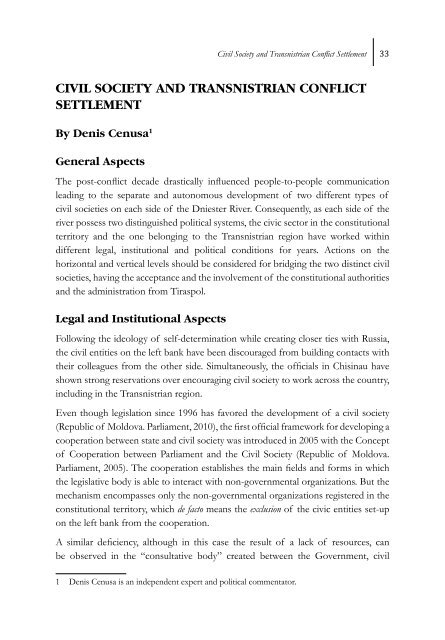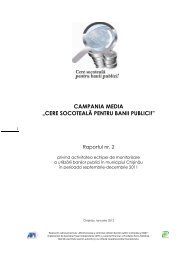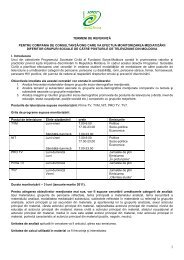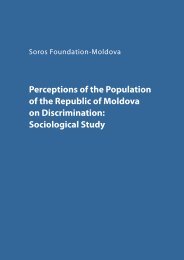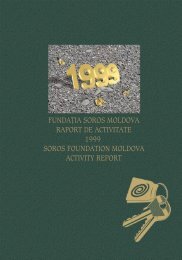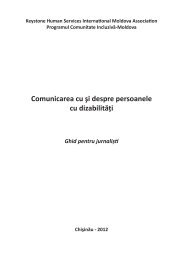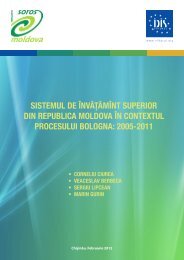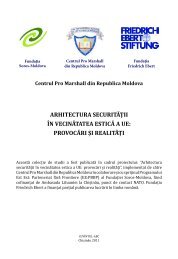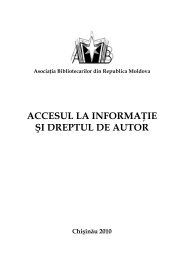Managing Intractable Conflicts: Lessons from Moldova and Cyprus
Managing Intractable Conflicts: Lessons from Moldova and Cyprus
Managing Intractable Conflicts: Lessons from Moldova and Cyprus
You also want an ePaper? Increase the reach of your titles
YUMPU automatically turns print PDFs into web optimized ePapers that Google loves.
Civil Society <strong>and</strong> Transnistrian Conflict Settlement<br />
33<br />
CIVIL SOCIETY AND TRANSNISTRIAN CONFLICT<br />
SETTLEMENT<br />
By Denis Cenusa 1<br />
General Aspects<br />
The post-conflict decade drastically influenced people-to-people communication<br />
leading to the separate <strong>and</strong> autonomous development of two different types of<br />
civil societies on each side of the Dniester River. Consequently, as each side of the<br />
river possess two distinguished political systems, the civic sector in the constitutional<br />
territory <strong>and</strong> the one belonging to the Transnistrian region have worked within<br />
different legal, institutional <strong>and</strong> political conditions for years. Actions on the<br />
horizontal <strong>and</strong> vertical levels should be considered for bridging the two distinct civil<br />
societies, having the acceptance <strong>and</strong> the involvement of the constitutional authorities<br />
<strong>and</strong> the administration <strong>from</strong> Tiraspol.<br />
Legal <strong>and</strong> Institutional Aspects<br />
Following the ideology of self-determination while creating closer ties with Russia,<br />
the civil entities on the left bank have been discouraged <strong>from</strong> building contacts with<br />
their colleagues <strong>from</strong> the other side. Simultaneously, the officials in Chisinau have<br />
shown strong reservations over encouraging civil society to work across the country,<br />
including in the Transnistrian region.<br />
Even though legislation since 1996 has favored the development of a civil society<br />
(Republic of <strong>Moldova</strong>. Parliament, 2010), the first official framework for developing a<br />
cooperation between state <strong>and</strong> civil society was introduced in 2005 with the Concept<br />
of Cooperation between Parliament <strong>and</strong> the Civil Society (Republic of <strong>Moldova</strong>.<br />
Parliament, 2005). The cooperation establishes the main fields <strong>and</strong> forms in which<br />
the legislative body is able to interact with non-governmental organizations. But the<br />
mechanism encompasses only the non-governmental organizations registered in the<br />
constitutional territory, which de facto means the exclusion of the civic entities set-up<br />
on the left bank <strong>from</strong> the cooperation.<br />
A similar deficiency, although in this case the result of a lack of resources, can<br />
be observed in the “consultative body” created between the Government, civil<br />
1 Denis Cenusa is an independent expert <strong>and</strong> political commentator.


